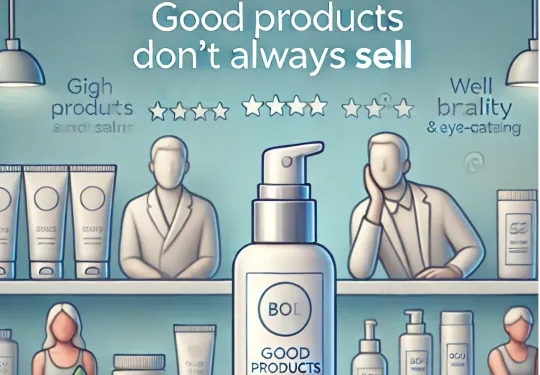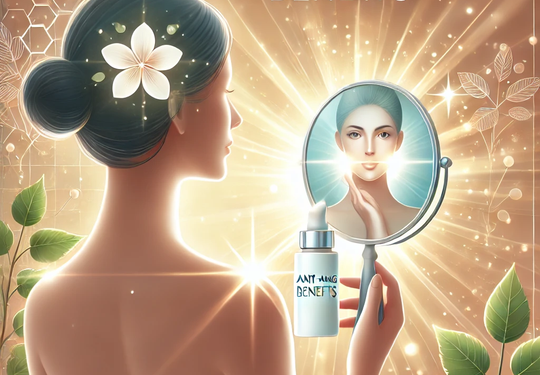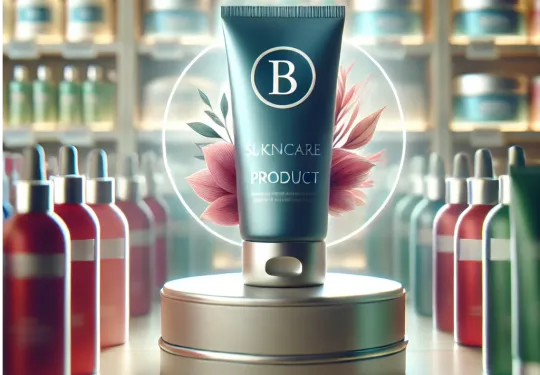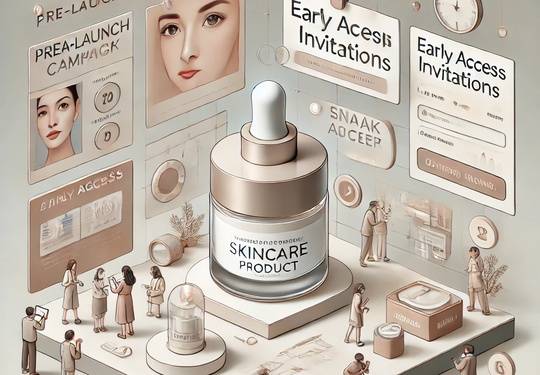Why a Good Skincare Product Isn’t Always Enough: The Power of Branding and Resonating with Consumers
By:
bryan choong
On
17/11/2024Reading time:
0 min
Summary:
Many new skincare entrepreneurs believe that creating a high-quality product is the secret to success. While quality is undoubtedly important, the reality is that a good product alone doesn’t guarantee sales. In a crowded market, branding, storytelling, and understanding consumer needs play a crucial role in turning a great product into a successful one. Let’s explore why this is the case and how entrepreneurs can create a skincare line that resonates with consumers and drives purchases.
The Misconception: A Good Product Sells Itself
The assumption that “if the product is good, it will sell” overlooks the complexity of consumer behavior and market dynamics. Consumers are flooded with skincare options, from budget-friendly drugstore brands to luxury names, and they make purchasing decisions based on more than just product quality.
Example: The Ordinary
The Ordinary, a brand under DECIEM, made waves in the skincare industry not just because of its effective products, but because of its transparent and straightforward branding. The brand's success lies in its clear, scientific approach, affordable prices, and minimalist packaging, appealing to consumers looking for honest, no-nonsense skincare. The Ordinary didn’t rely solely on the quality of its formulations; it resonated with consumers who were frustrated with inflated prices and unnecessary ingredients in skincare.

skincare product marketing brief

establish skincare branding
The Power of Branding: More Than Just a Logo
Branding is the soul of your product—it’s what makes your product memorable, relatable, and ultimately sellable. A strong brand goes beyond a name and logo; it’s about creating a personality, values, and an emotional connection that consumers identify with.
Define Your Brand’s Purpose and Values: Consumers today are more value-driven than ever. They want to support brands that align with their own values, whether it’s sustainability, cruelty-free practices, or a focus on scientific formulations.
Example: Herbivore Botanicals is known for its commitment to natural, non-toxic ingredients and eco-friendly packaging. By positioning itself as a “clean beauty” brand, Herbivore appeals to consumers who prioritize sustainable and safe products.
Tell a Compelling Story: Sharing the “why” behind your brand helps build an emotional connection with consumers. Why did you create your skincare line? What makes it different? Your story gives consumers a reason to care about your product and trust your brand.
Example: Tatcha, inspired by Japanese beauty rituals, is a brand that tells the story of time-honored traditions with a modern
Understand Your Audience’s Desires, Not Just Their Needs
Sometimes, consumers aren’t searching for a specific product—they’re looking for a solution to a problem or an enhancement to their lifestyle. A successful skincare brand recognizes this and markets its products as answers to the questions consumers are asking.
Identify Consumer Pain Points: If your target audience is concerned with anti-aging, they might be looking for “youthful skin” rather than just a “retinol cream.” By framing your product as a solution to their specific problem, you’re connecting with their desires.
Example: Olay Regenerist doesn’t just promote itself as a moisturizer; it’s marketed as a line that helps reduce the appearance of wrinkles and makes skin appear more youthful. This appeals directly to consumers who are seeking anti-aging benefits, rather than just hydration.
Communicate Benefits, Not Just Features: Consumers buy benefits, not products. Instead of focusing on the ingredients, highlight what those ingredients can do for them—such as “softer, plumper skin” or “bright, even complexion.”

understand consumer desires not just their needs

importance of product positioning over a crowded market
The Importance of Positioning: Standing Out in a Crowded Market
In a saturated market, positioning is key. Your product needs to stand out and offer something that competitors don’t. This doesn’t necessarily mean your product has to be entirely unique, but it should have a unique angle or perspective that appeals to your target audience.
Find Your Niche: Position your brand to appeal to a specific segment of the market. This could be clean beauty, cruelty-free, vegan, results-driven, or luxury skincare. When consumers feel your product is tailored to their needs, they’re more likely to make a purchase.
Example: Drunk Elephant markets itself as a brand that’s “clean-clinical,” avoiding what it calls the “Suspicious 6” ingredients. This unique positioning appeals to health-conscious consumers looking for safe and effective skincare.
Leverage Social Proof: Consumers are more likely to buy a product if they see others enjoying it. Social proof can include customer reviews, influencer endorsements, and testimonials that build trust in your brand.
Creating a Brand That Resonates: Tips for New Skincare Entrepreneurs
Listen to Your Audience: Engage with potential customers on social media, forums, or even through surveys. Understanding their concerns, preferences, and language can help you tailor your branding and product messaging effectively.
Emphasize Transparency: Today’s consumers value transparency and authenticity. Be clear about your ingredients, sourcing practices, and product benefits. This fosters trust and credibility, making consumers more likely to choose your brand.
Deliver Consistency: Your branding, packaging, website, and customer service should all convey a consistent message. Inconsistency can confuse consumers and weaken your brand’s impact.
Add a Personal Touch: Whether through a handwritten note, personalized product recommendations, or follow-up emails, adding a personal touch shows that your brand cares about each customer. This can create loyalty and increase the chances of repeat purchases.

pre-launch campaign of a new skincare product
Conclusion: Resonating with Consumers for Long-Term Success
Launching a successful skincare product requires more than a great formula. Branding, storytelling, and understanding your audience’s desires are essential to building a loyal customer base. By focusing on what consumers want to achieve with your product, rather than simply offering a product, you create a brand that resonates on a deeper level. Brands that truly connect with their customers do more than just sell—they inspire, solve, and engage, creating happy and loyal customers who return time and again.
In the words of Glossier’s founder, Emily Weiss: “People are looking for things that feel real.” For entrepreneurs, this means that a good product alone isn’t enough. It’s about connecting with consumers in a way that feels genuine, aligns with their values, and offers them real benefits that they can see and feel.
Subscribe form
This is where you want visitors to leave their email addresses so you can send them marketing info and targeted deals. To convince people to subscribe to your newsletter, try offering them something valuable that aligns with your business. This could be a special offer or early access to new products.